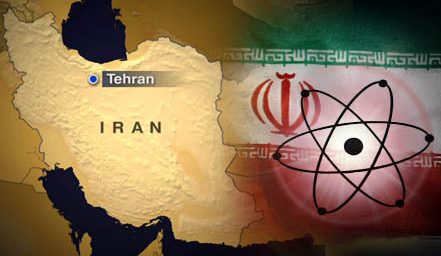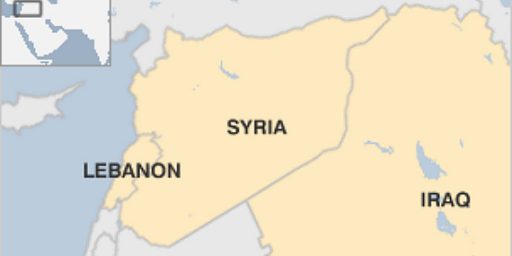Kissinger: West Must Unite to Avoid War of Civilizations
Henry Kissinger argues that internecine bickering over the Iraq War and misunderstanding of the consequences of the Israel-Hezbollah war could lead to dire consequences. He calls for a comprehensive cross-Atlantic strategy to stave off a “war of civilizations.”
Everything returns to the challenge of Iran. It trains, finances, and equips Hezbollah, the state within a state in Lebanon. It finances and supports the Sadr militia, the state within a state in Iraq. It works on a nuclear weapons program, which would drive nuclear proliferation out of control and provide a safety net for the systematic destruction of at least the regional order. The challenge is now about world order more than about adjustments within an accepted framework.
A common Atlantic policy backed by moderate Arab states must become a top priority, no matter how pessimistic previous experience with such projects leaves one. The debate sparked by the Iraq war over American rashness versus European escapism is dwarfed by what the world now faces. Both sides of the Atlantic should put their best minds together on how to deal with the common danger of a wider war merging into a war of civilizations against the background of a nuclear armed Middle East. This cannot be done through ad hoc bargaining over Security Council resolutions; rather, the Security Council resolutions should emerge from an agreed strategy.
[…]
In the Lebanon crisis, one can detect the beginning of such a process. Europe shared enough of the American perception, and America paid enough attention to European concerns, to produce a coordinated diplomacy in the Security Council and to supply a significant peacekeeping force for southern Lebanon.
It remains to be seen whether this cooperation can be sustained in the next phase, specifically, whether the UN effort in Lebanon can become a means to deal with the dangers outlined here or become a way to avoid the necessary decisions. This is even more true of the impending Iran negotiations. Ever since the collapse of the Soviet Union, thoughtful observers have wondered whether the Atlantic ties can be maintained in the absence of a commonly perceived danger. We now know that we face the imperative of building a new world order or potential global catastrophe. It cannot be done alone by either side of the Atlantic. Is that realization sufficient to regenerate a sense of common purpose?
My instinct here, as usual, is to be skeptical of global cooperation. Not only do our European and Arab allies simply have divergent interests from ours, the domestic political situations are radically different. The moderate Arab leaders have to steer a careful course to simultaneously fight against the Islamist terrorists and avoiding the appearance of becoming too Western and secular. Many European states, including our cousins in the UK, have a large Muslim population that must be considered when making these decisions. In the United States, on the other hand, there is a larger consensus that Islamists in general and Iran in particular are dangerous. What to do about that, however, has us bitterly divided.
Morever, even if the political considerations could be dealt with, it is far from clear that an effective policy can be mounted for containing Iran. The military option is largely unviable aside from the unthinkable exception of thermonuclear genocide. Economic sanctions are incredibly hard to enforce and it’s not as if Iran is without its own weapons in that fight.
(Note: An AFP summary via YahooNews, which tipped me to the piece, says the column is in WaPo, but I could not find it there either via an archive search or a scanning of the last couple days’ opinion pages online.)
UPDATE: Smash observes, “When Kissinger talks, I listen. But I also caution that he is the product of a bygone era, and his analysis may be somewhat informed by nostalgia.” Steven Taylor has similar thoughts in the comments below.





Kissinger’s “realism” occasionally runs up against his Holy Alliance nostalgia ….
The argument here seems to track with Kissinger’s book: Does America Need a Foreign Policy? (written pre-9/11), which makes some arguments about strengthening cross-Atlantic ties before the EU goes its own way, especially militarily. Setting aside my skepticism on that count (the militarization of the EU), I have to wonder how much of this which you are discussing isn’t simply a recapitulation of that notion, rather than a plan that came out of careful consideration of the situation de novo.
Kissinger likes the whole Realpolitik, BoP approach to things–an approach that I question in this context in terms of pressuring Iran. Indeed, the only place that balance of power logic works in this scenario is to explain why Iran would want a nuke, in terms of regional balance vis-a-vis Israel. And I don’t see any particularly good way to overcome that very powerful impulse.
I’ve linked to you here: LINK
I think it makes perfect sense if it is read and taken to heart by the rest of the west (parts of the west do take it to heart and parts don’t). In other words, those who are joggling the elbow of those trying to fight the war on terror should perhaps reconsider what will happen if they are to successful at joggling that elbow.
It made sense in the cold war and led to the 1st, 2nd and 3rd worlds idea. You were on one side or the other or you were a weak country which tried to thread between the two.
Meanwhile, back at “no existential threat” from islamists……………..
Bernard Lewis noted in August of this year that MAD worked as a deterant for the Soviets, who “loved life”, but could become an enticement to paradise hungry islamists…especially shia.
Iran is shia,
Osama is sunni,
“and the enemy of my enemy is my friend” transcends all.
It’s a human nature thing……..